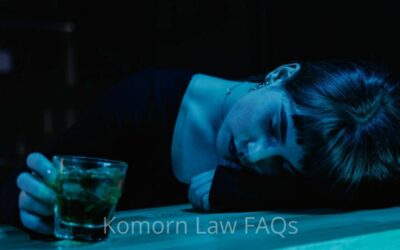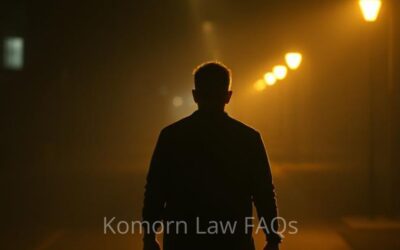US Supreme Court – Salinas v. Texas
When Can Silence Be Used Against You?
In the realm of criminal law, the Fifth Amendment to the United States Constitution grants individuals critical protections, including the right to remain silent and the right against self-incrimination. These rights are fundamental shields against potential abuses by law enforcement and the legal system.
Understanding Your Fifth Amendment Rights
The Fifth Amendment ensures that no person shall be compelled to be a witness against themselves in a criminal case. This right is commonly invoked during police interrogations and legal proceedings to prevent individuals from inadvertently providing evidence that could be used against them.
Legal Development
The Court held that merely remaining silent in response to police questioning is not sufficient to invoke the privilege against self-incrimination. Instead, individuals must expressly assert their Fifth Amendment rights in order to receive protection.
In the case of Salinas v Texas (decided June 17, 2013), the United States Supreme Court made a significant ruling concerning the invocation of the Fifth Amendment. The Court held that merely remaining silent in response to police questioning is not sufficient to invoke the privilege against self-incrimination. Instead, individuals must expressly assert their Fifth Amendment rights in order to receive protection. Failure to do so may result in the prosecution using a person’s silence against them in court.
Implications for Individuals
This ruling underscores the importance of understanding and actively asserting one’s rights under the Fifth Amendment. If you are in a situation where you may be questioned by law enforcement and wish to invoke your right to remain silent, it is crucial to clearly state that you are asserting your Fifth Amendment privilege. This simple declaration can help protect you from potential legal consequences that may arise from remaining silent without explicitly claiming this constitutional right.
Legal Counsel and Your Rights
When facing legal challenges, particularly in criminal cases, it is advisable to seek legal counsel immediately. A qualified attorney can provide guidance on how to navigate interactions with law enforcement while safeguarding your constitutional rights. If you are subpoenaed to testify, an attorney can also manage the invocation of your Fifth Amendment rights on your behalf, ensuring that your interests are protected throughout the legal process.
Conclusion
In conclusion, while the Fifth Amendment provides powerful protections against self-incrimination, recent legal interpretations necessitate proactive measures to invoke these rights effectively. Merely remaining silent may no longer suffice to protect oneself from potential legal repercussions. Therefore, understanding your rights and seeking competent legal representation are crucial steps in safeguarding your interests under the Fifth Amendment.
For expert legal assistance in navigating criminal law matters and protecting your constitutional rights, contact Komorn Law PLLC today. Our dedicated team is committed to advocating for our clients and ensuring that their rights are upheld throughout the legal process.
CONSTITUTION OF MICHIGAN OF 1963
§ 17 Self-incrimination; due process of law; fair treatment at investigations.
Sec. 17.
History: Const. 1963, Art. I, § 17, Eff. Jan. 1, 1964
Former Constitution: See Const. 1908, Art. II, § 16.
Recent

Client Was Caught With Brass Knuckles – What’s the Law?
Michigan Criminal Laws FAQs Brass KnucklesGetting caught with brass knuckles in Michigan can lead to serious legal trouble. While some states have more lenient laws, Michigan takes a strict stance on these types of weapons. If you or someone you know faces charges...

Resisting an Unlawful Arrest in Michigan
Michigan Criminal Laws FAQs Resisting an Unlawful Arrest in MichiganThe question of whether you can legally resist an unlawful arrest in Michigan is complex, and the answer is generally no, with very limited exceptions. While the idea of defending oneself against an...
Other Articles
Video kept from family shows police force not drugs killed son
police and paramedics inflicted “inhumane acts of violence”A mother has filed a federal lawsuit claiming that, while her son was experiencing a seizure in his Tennessee apartment, police and paramedics inflicted “inhumane acts of violence” on the 23-year-old instead...
What could happen when you click the – I agree – box?
Wrongful death suit against Disney serves as a warning to consumers when clicking ‘I agree’A wrongful death lawsuit involving Walt Disney Parks and Resorts highlights the critical importance for consumers to meticulously review the fine print before registering for a...
4th Circuit says – Assault weapons can be banned
This case is about whether the Act’s general prohibition on the sale and possession of certain “assault weapons,” are unconstitutional under the Second Amendment. An en banc federal appeals court upheld Maryland’s ban on assault-style weapons in a 10-5 decision...
SCOTUS – Justices uphold laws targeting homelessness
Does not amount to “cruel and unusual punishment” under the Eighth Amendment The Supreme Court has affirmed the validity of ordinances in a southwest Oregon city that restrict individuals experiencing homelessness from utilizing blankets, pillows, or cardboard boxes...
















